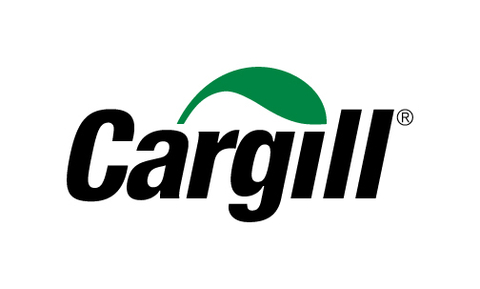Cargill Announces Commitment to Eliminate Deforestation and Land Conversion in Brazil, Argentina and Uruguay by 2025
Cargill Announces Commitment to Eliminate Deforestation and Land Conversion in Brazil, Argentina and Uruguay by 2025
Cargill’s commitment extends to several row crops, including soy, corn, wheat, and cotton, and builds on its commitment to protect and revitalize land in critical ecosystems
MINNEAPOLIS--(BUSINESS WIRE)--South America is one of the most critical regions for biodiversity and vital to feeding the world. To protect South America’s natural ecosystem, Cargill is announcing an accelerated commitment to eliminate deforestation and land conversion from its direct and indirect supply chain of key row crops in Brazil, Argentina, and Uruguay by 2025. The commitment spans several important commodities in the global food system, including in-country origination of soy, corn, wheat, and cotton, building upon the company’s global commitment of deforestation-free commodities and conversion-free soy across South America by 2030.
“At Cargill, we are actively shaping a future where critical ecosystems will be protected for generations to come,” said Pilar Cruz, Cargill’s Chief Sustainability Officer. “Accelerating our commitment is a testament to our resolve to make real, tangible progress against deforestation and land conversion, in line with our climate action plan, while also supporting the livelihoods of farmers and agricultural communities that are vital to feeding the world.”
Combined, Argentina, Brazil and Uruguay provide approximately 30 percent of the world’s trade flows and 13 percent of total production of these crops. Cargill’s commitment will help protect native vegetation and support sustainable agriculture in these countries.
“As Cargill works to eliminate deforestation in our supply chains around the world, we are prioritizing collective action and collaborative partnerships with farmers, governments, non-governmental organizations, and other critical stakeholders to find balanced solutions for economic development and environmental conservation,” Cruz added.
In particular, Cargill will leverage World Resources Institute’s (WRI) geospatial expertise alongside improved traceability to strengthen its monitoring, reporting and verification of natural ecosystems and farm areas. WRI is committed to supporting implementation for deforestation- and conversion-free supply chains, which are critical components of food security, biodiversity conservation, and climate action.
“Getting deforestation and conversion of natural ecosystems out of soft commodity supply chains is one of the most significant things a business can do for people, nature, and climate,” said Craig Hanson, Managing Director of Programs at WRI. “Cargill’s new commitment aligns with a vision that it’s possible to produce food while protecting vital ecosystems. Our monitoring expertise should help Cargill achieve this ambitious commitment in Brazil, Uruguay and Argentina by 2025.”
With farmers at the center of the agriculture supply chain, Cargill remains firmly committed to working with farmers across the region and investing in solutions that support their livelihoods.
Sustainability is deeply ingrained in Cargill’s long-term strategy, integral to its mission of nourishing the world in a safe, responsible, and sustainable manner. The company’s 2023 ESG Report outlines its strategy and progress in key areas, such as decarbonization, sustainable land use and food security, as well as in-depth chapters on priority supply chains such as soy.
For media inquiries, please contact: media@cargill.com
About Cargill
Cargill helps the world’s food system work for you. We connect farmers with markets, customers with ingredients and families with daily essentials—from the foods they eat to the floors they walk on. Our 160,000 team members around the world innovate with purpose, empowering our partners and communities as we work to nourish the world in a safe, responsible, sustainable way.
From feed that reduces methane emissions to waste-based renewable fuels, the possibilities are boundless. But our values remain the same. We put people first. We reach higher. We do the right thing. It’s how we’ve met the needs of the people we call neighbors and the planet we call home for 157 years—and how we’ll do so for generations to come. For more information, visit Cargill.com and our News Center.
About World Resources Institute
World Resources Institute (WRI) is a global research organization with offices in Brazil, China, Colombia, India, Indonesia, Mexico and the United States, and regional offices for Africa and Europe. Our over 1,700 staff work with partners to develop practical solutions that improve people’s lives and ensure nature can thrive.
